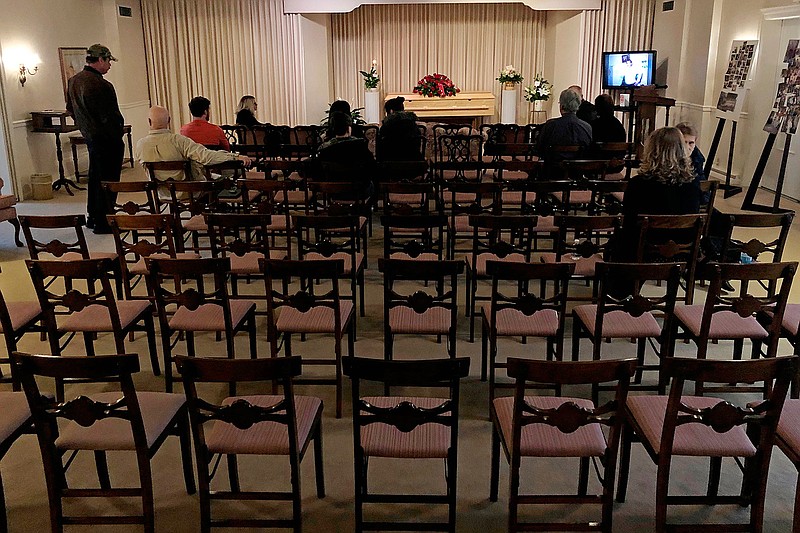For Menaka Kannan, it was bad enough when she heard that a fellow member of New York City's Baha'i community had contracted the novel coronavirus. But she was not emotionally prepared for the news that came roughly a week later: He had succumbed to the infection and died.
"The news of his passing, of course, is very shocking," she said.
As the community grappled with the grief, a lingering question arose: How do you conduct a funeral in the midst of a global pandemic, when a healing hug is now seen as a potential death sentence?
It's a conundrum facing spiritual leaders the world over as the death toll from the coronavirus mounts, leaving the faithful in the U.S., Italy and elsewhere struggling to amend ancient burial practices to abide by government recommendations that advise against gatherings of more than 10 people or, in some cases, ban funerals altogether.
For Kannan and other members of her community's "burial task force," preparing for a funeral required balancing a desire to offer spiritual comfort to the grieving with the need to shield others against infection.
Preparations for burial quickly took on complex dimensions. Baha'is often shroud their dead in white cloth strips crafted by volunteers, but to observe social distancing, the traditionally group-oriented activity became a more solitary affair: Only two people were allowed in the city's Baha'i center at a time to prepare burial materials, and those who participated were required to be 6 feet apart from each other throughout the process.
"It's unfortunate that we won't be able to do a proper, well-attended service, but it's also really heartwarming to see that you can still have a burial," she said.
Kannan said she was initially concerned about how they would navigate the process with the funeral home but found that it already had systems in place to handle victims of COVID-19.
"They take all the right precautions: They use gloves and masks and whatever they need to and they even will meet you outside to sign a paperwork so that there's a no-contact handoff," she said.
Kannan's community, which numbers only around 1,000 spread across New York City, also leaned on digital tools that members had developed to stay in touch over the past few years. As news of the death spread, her fellow faithful convened Zoom video conference calls to mourn and share spiritual community with each other.
"It was tough, because by the end we had all shared prayers, we were singing songs and it still felt spiritually uplifting, although maybe a little bit less than it would have if we were in the same space," she said. "There was a moment at the end where we all kind of got really teary-eyed because it was bittersweet. We were recognizing the resilience of our communities to find connection no matter what happens, but we also just miss people, you know?"
Faith groups in other states are attempting to grapple with the issue of funerals by instituting new policies designed to offer some semblance of comfort for the bereaved while keeping others safe from infection.
On Tuesday, the Massachusetts Council of Churches released guidelines for Christian communities wanting to hold funerals amid the epidemic. The guidelines - which were reviewed by local public health officials - outline a number of recommendations, such as planning funerals remotely, working with the bereaved to make a list of 10 people who could feasibly attend a burial, livestreaming services, cautioning against in-person wakes, using gestures instead of physical hugs and delaying some or all rituals indefinitely.
"We were very clear in these guidelines that pastors acknowledge the pain - not just of the death, but of the grief of the family upset by the prospect of a funeral that is not likely as they imagined," said the Rev. Laura Everett, MCC's executive director. "It is a profound act of devotion to a grieving family to stay away - but it's unbelievably hard."
Meanwhile, for faith leaders such as the Rev. Mindi Welton-Mitchell, pastor of Queen Anne Baptist Church in Seattle, any funeral is out of the question. State officials recently banned funerals in the region for the foreseeable future, leaving religious leaders scrambling to develop strategies for how to care for the grieving.
When her stepfather died in late February, her family buried him quickly and planned a larger memorial service in Alaska for this coming Saturday. But in light of sweeping new measures instituted by the governor - such as a requirement that all visitors to Alaska self-quarantine for 18 days after arriving in state airports - the service has been postponed indefinitely.

